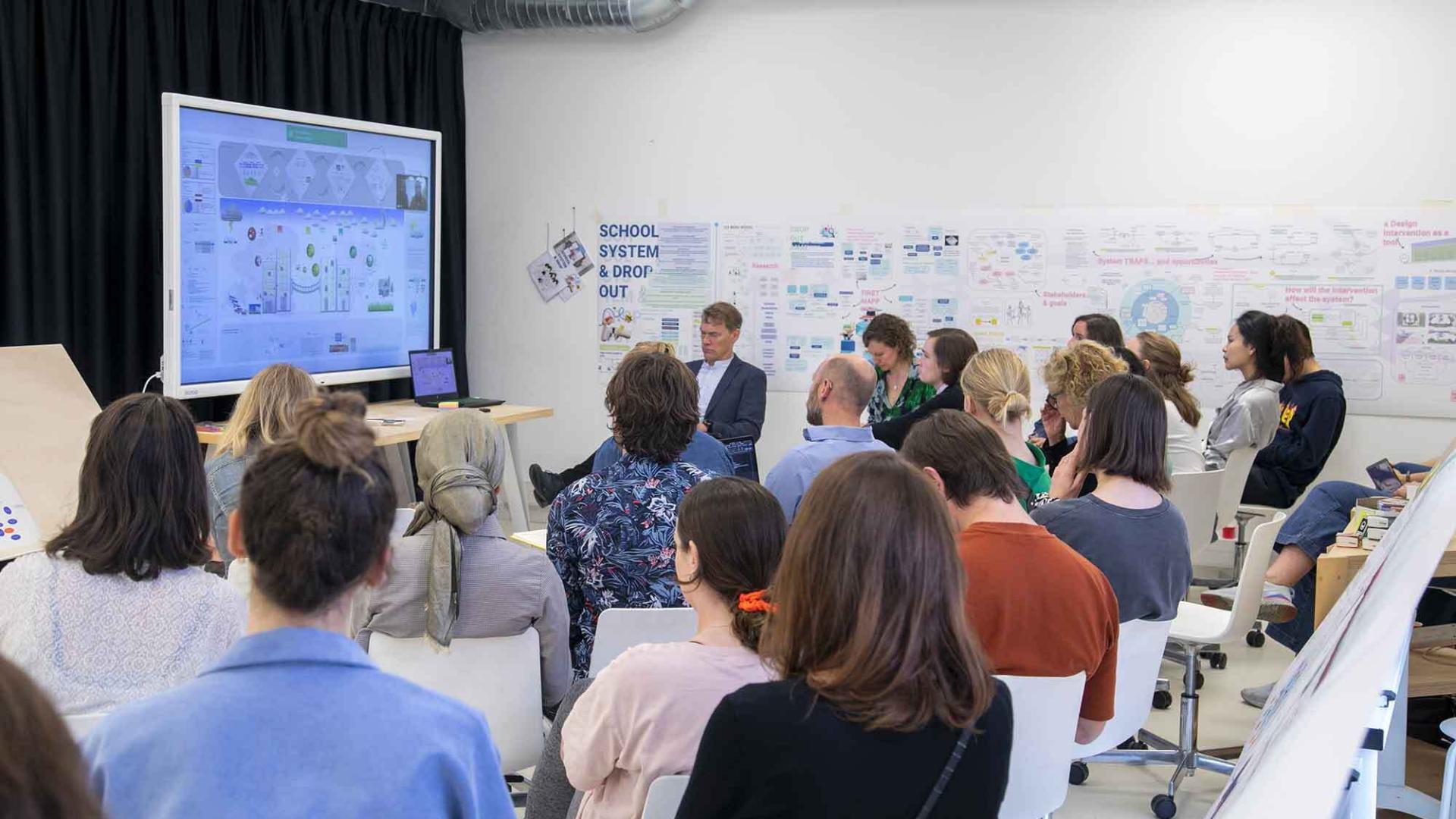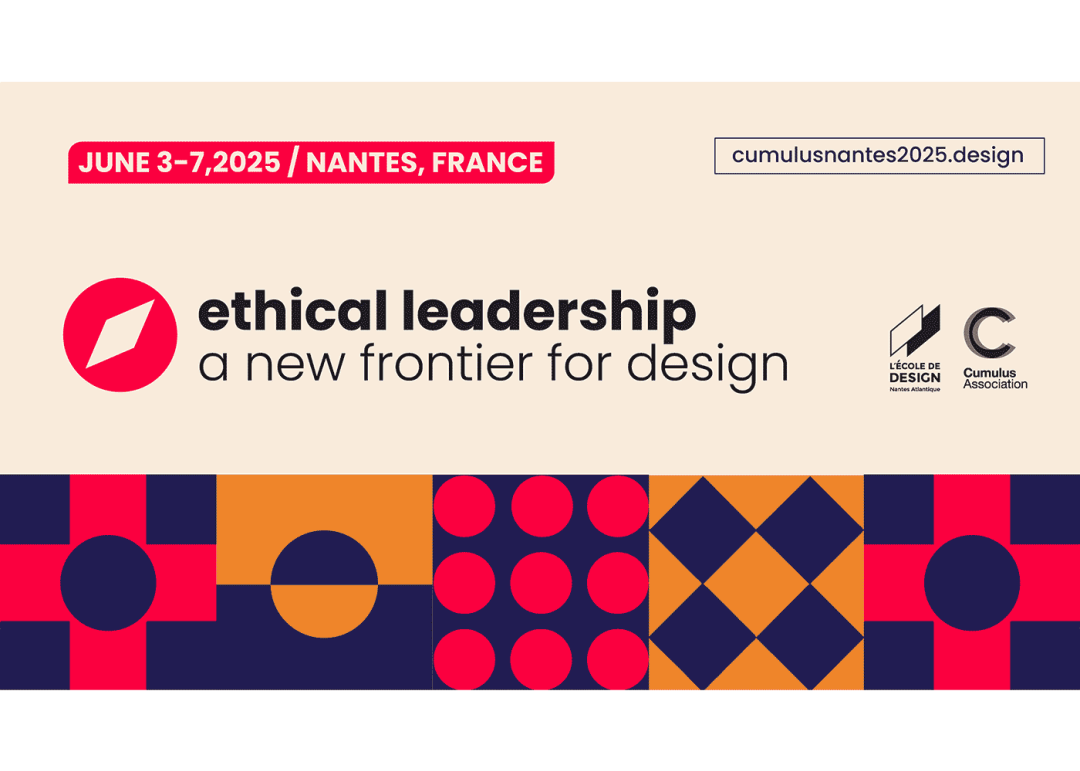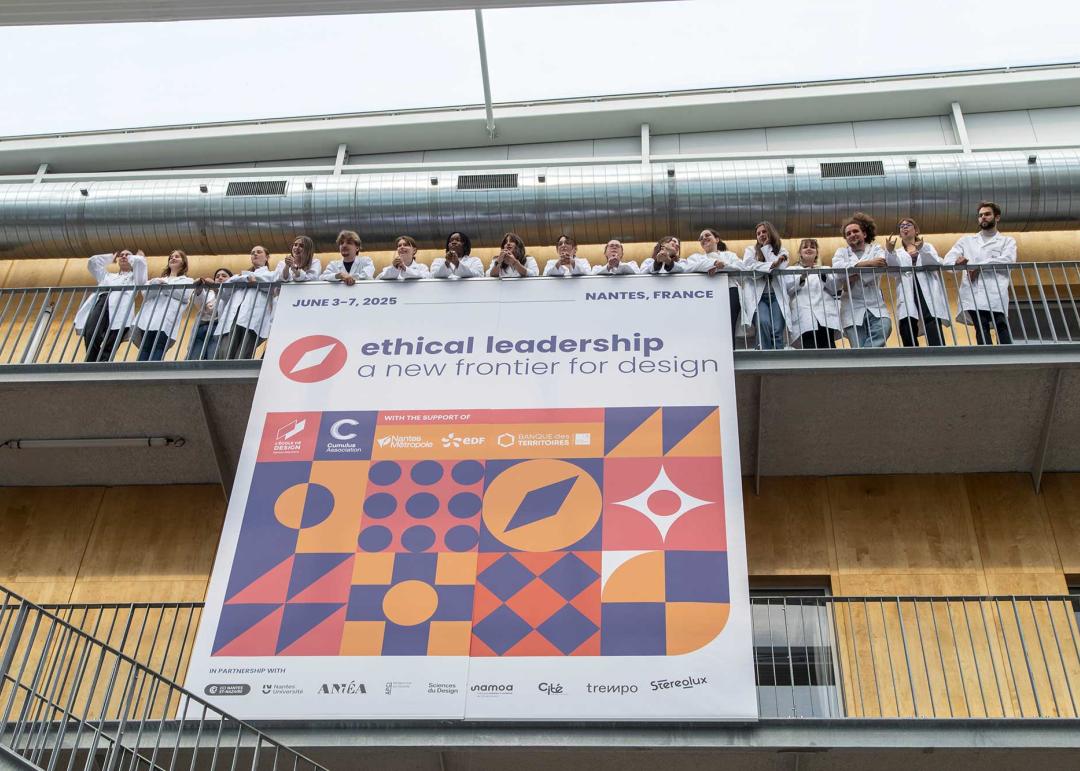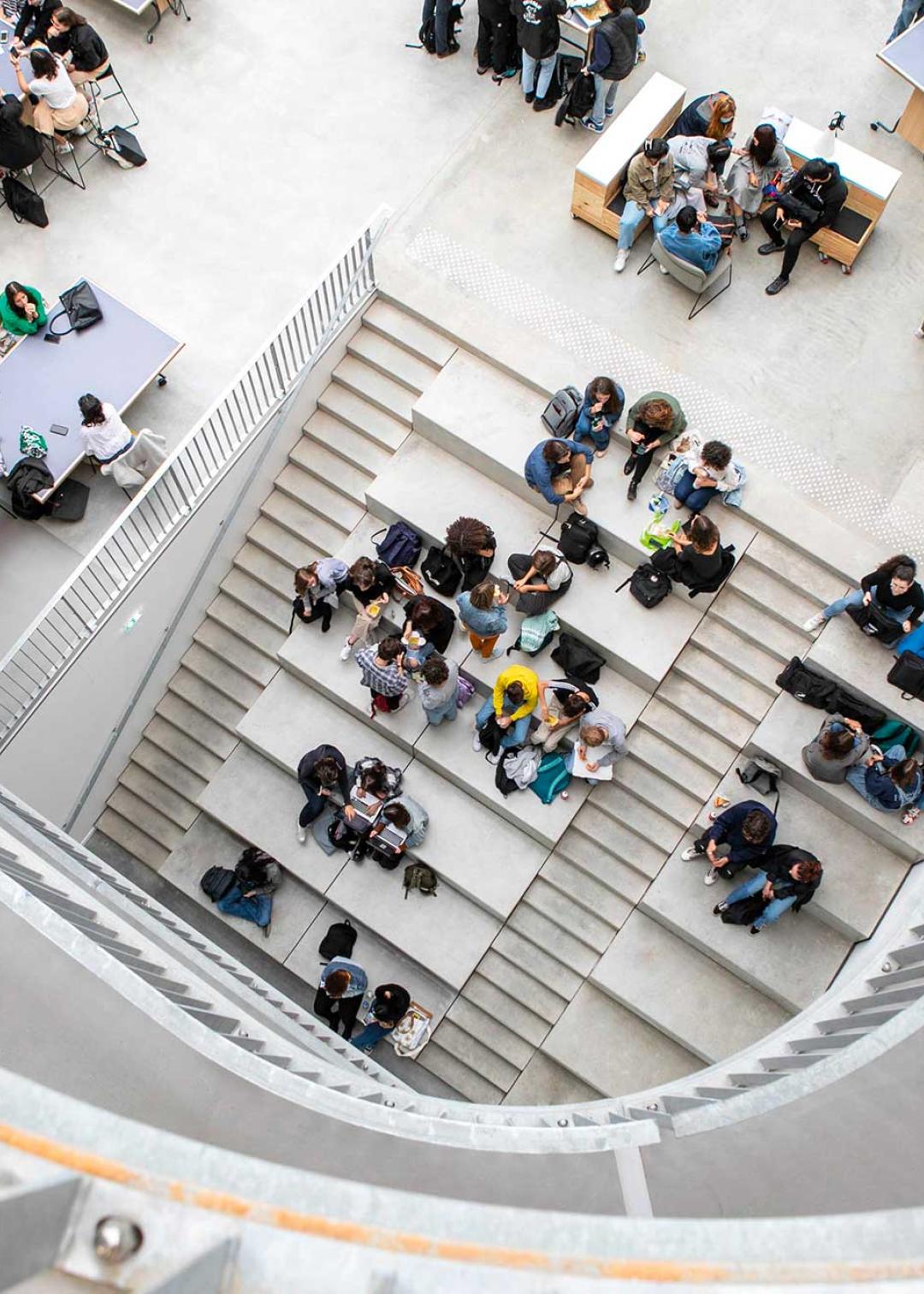
Practical Oriented Systemic Design" workshop
The "Practical Oriented Systemic Design" workshop was launched two years ago in partnership with Oslo Metropolitan University in Norway. As part of this collaboration, L’École de design Nantes Atlantique welcomed Norwegian teachers and professionals to Nantes from 7 to 10 June 2022, for the final phase of this annual workshop.
The "Practical Oriented Systemic Design" workshop was launched two years ago in partnership with Oslo Metropolitan University in Norway. As part of this collaboration, L’École de design Nantes Atlantique welcomed Norwegian teachers and professionals to Nantes from 7 to 10 June 2022, for the final phase of this annual workshop.
This project involves students in the master’s cycle of the Studio France of L’École de design Nantes Atlantique, an international studio that welcomes students of different nationalities. The young designers were able to learn about systemic design through a project that lasted several months and was carried out in teams with Norwegian professionals from the municipality of Oslo.
A multicultural collaboration between designers and experts
In a hybrid team, the design students from the École de design Nantes Atlantique worked on concrete problems: those encountered by the agents of the Oslo municipality, or of a consulting agency for the Norwegian government, in continuing education at the Norwegian University. Through visualisation tools, they have tried to represent the complexity of the systems involved in order to propose interventions and evaluate the possible changes to be made.
"Our students understand that being a designer means collaborating with an expert, not being an expert. It’s co-creating with other professions, other cultures, a global vision." Florent Orsoni, Director of the City Design Lab
"Visualisation, through gigamaps for example, is a very good tool for cooperation between designers and the various stakeholders. It is a very iterative and dynamic process, which allows us to describe and analyse the systems, structures and relationships that take place. From this, many opportunities for change emerge to make decisions", explains Tore Gulden, industrial design teacher and systems design expert at OsloMet.
"This course has changed a lot in my design practice. I was able to stop focusing on the things I had to do in the future and start thinking about what I had to do now," says Namratha Vaidya, an Indian master’s student at Studio France. She is currently doing her end-of-study internship with Nantes Métropole on the subject of "global health". Her mission is to study this theme through the different public policies of the city, using the methodologies and tools of systemic design learned during the different workshops.
"It’s very interesting to work with young international designers because we have very different backgrounds, ways of thinking and understanding things", explains Kristin Horn Bringedal.
"The prospects for this collaboration are numerous. We are even considering the launch of a joint master's degree, within the framework of the Erasmus programme, which is very interesting in terms of mobility, culture and European construction."
Bright prospects for this European collaboration
The next workshop will take place in October 2022 in Nantes, in partnership with Stellantis, to explore the issue of mobility using the tools of systemic design.
Given the success of this partnership, this experience is being extended and amplified through the creation of a European Systemic Design Lab with OsloMet and the University of Applied Sciences in Berlin (HTW Berlin). Travel is already financed by European mobility and exchange funds. This collaboration between schools will enable the development of systems design tools by pooling their skills, but also to offer an international exchange experience to students.
"The prospects of this collaboration are numerous. We are even considering the launch of a joint master’s degree, as part of the Erasmus programme, which is very interesting in terms of mobility, culture and European construction", explains Florent Orsoni, director of the school’s City Design Lab.
News





value and adapt to change
